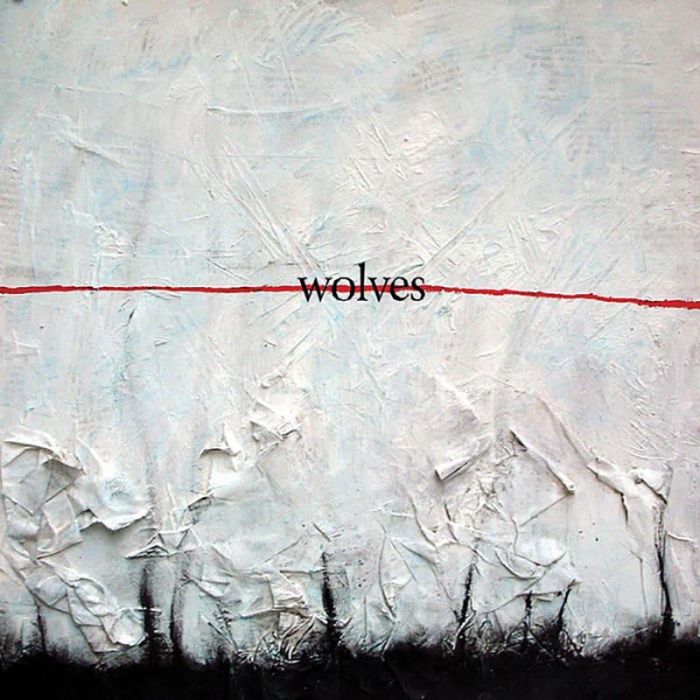
If you’re not careful, it’ll be easy to be underwhelmed by My Latest Novel’s Wolves, due to the amount of hype that has come to surround the Scottish quintet’s debut. Wolves has received comparisons to A Silver Mt. Zion, Sufjan Stevens, The Arcade Fire, and of course, Belle And Sebastian. And as is usually the case, the comparisons are close in some regards, but way off the mark in many others.
But underwhelmedness also seems like a natural response to the fact that My Latest Novel weds orchestral and choral arrangements to folk-inflected pop songs. Which, in the age of Sufjan, seems to be everywhere these days. And so there’s that sense of “heard this one before” that you need to get over. Truth is, there is much in My Latest Novel’s music that is familiar. But once a few listens dismiss the pre-listening hype, you’ll realize that it’s familiar in the same way that a favorite book, chair, or sweater is familiar — broken in, reassuring, comfortable, and trustworthy.
So My Latest Novel certainly aren’t blazing any new musical paths in this post-rock musical world in which we live, but that’s all part of the charm. They employ stirring, searing string arrangements — album opener “Ghost In The Cutter” begins with a slowburn that would make any Constellation act proud — but the album never feels bombastic. And like Belle And Sebastian or Sufjan Stevens, the band does blend delicate melodies, light vocal harmonies, and clever lyrics — but the album never feels the slightest bit pretentious or in danger of drowning itself in twee-ness.
And so because the album doesn’t readily strike a pose, it can be a little tempting to overlook Wolves, to shuffle it off to the side in lieu of CDs that might be a little more grabby initially. But repeated listens bear out My Latest Novel’s charms.
There’s the way that the plucked strings, sparse piano tinklings, and strummed acoustic guitar blend together like the opening theme for some winsome, Wes Anderson-esque tragi-comedy — kind of ungainly and maybe too earnest, but altogether winsome and affecting. Or the way that “The Hope Edition” begins as an ode to everyone who salivates over Belle And Sebastian’s music, what with the wispy guitars, teary-eyed violins, and lilting, gently-brogued vocals, only to suddenly stop and decide to end with a heartwrenching slide guitar denouement.
But lest you think the band is all fey and twee, “When We Were Wolves,” while perhaps not the deepest song on the album lyrically, stomps and clomps around with martial rhythms as the band intones “And we run, and we hide, and we hid, and we ran/And we hide in lightless rooms/And we banged on our pianos/La la la, la la la.”
“Wrongfully I Rested” is one of the finest songs Eric Matthews never wrote, with lazily-strummed guitars matched by equally lazy vocals (complete with a lovely Scottish brogue), while the lyrics paint a rather desperate portrait (“Just like a star/My pining subsides/Drops but then swells/Clamps my insides/When I dream of you”). And that’s just the song’s first half. The second half is altogether more glorious and grandiose, though the lyrics are just as desperate, if not moreso.
The album ends with “The Reputation of Ross Francis,” a cheeky little tale about one man’s attempts to cheat his way through the pearly gates. The group’s lyrics are both cheeky and desperate (Please, sir/If you let me in I’ll prove sir/I’ll fight by tooth and nail/By crook by crook to dispel… all these myths and fabrications) and sound both victorious and defiant when delivered by the song’s shouting, drunken choir. And the shuffling drums and insistent guitars don’t hurt one bit.
I initially dismissed Wolves, not because it was bad, but because it just didn’t seem all that interesting. Oh how I wrong I was, and gladly confess that. My appreciation of the album has grown as I’ve lived with it, such that tracks like “Wrongfully I Rested” or “The Reputation Of Ross Francis” never fail to bring a catch to the throat or a chuckle (respectively). So the band does end up living up to the hype, albeit in a very different way than most people — and most reviews — might be expecting.